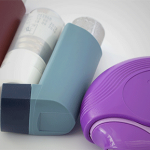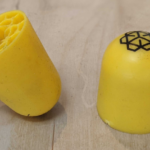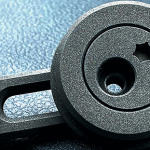- Home
- 3D Printing
- 3D Printing or Additive Manufacturing. What’s the difference?
3D Printing or Additive Manufacturing. What's the difference?
Use of the term 3D Printing by some manufacturers and media is increasingly causing unwanted confusion in the professional world of what was once simply called “Rapid Prototyping and Additive Manufacturing”.
Some manufacturers have started to call the machines they manufacture “3D Printers” which under the old rules were just called Rapid Prototype machines.
The effect is to understate the importance of some very specialized machines (SLA, SLS or LS), which have been producing very high quality prototype parts, in a wide range of materials, for decades.
As 3D Printing continues to cross the threshold from the commercial arena into the consumer space, the term “3D Printing” itself should be used carefully.
In an article about what it calls the growing “frenzy” of consumer interest in 3D Printing during 2013, Forbes Magazine recently cautioned about losing sight of the similar levels of growth and applications in industrial 3D Printing both for prototyping and final part manufacturing.
The “frenzy” to which Forbes was referring includes an announcement from 3D Systems that it is now offering an entry-level 3D printer in the Cube 3, a new desktop printer that will retail for less than $1,000 to consumers wanting to do their own 3D design and printing at home.
Separately, Adobe announced in January 2014 that its Adobe Creative Cloud subscribers can now 3D print directly from Photoshop. According to Adobe, “by simply clicking ‘Print’ in Photoshop CC, creatives can bring 3D designs to the physical world.”
A further announcement from Microsoft states that the software giant is bringing native 3D Printing support to Windows 8.1 meaning that it has the potential to be available about 100 million people.
At Prototype Projects we’re following these developments closely as the lines between the consumer, and increasingly ‘prosumer’, 3D Printing technologies and the industrial applications associated with commercial product development continue to blur.
That’s why, as an alternative term, “Additive Manufacturing” is perhaps a more helpful and accurate way of describing the range of 3D Printing technologies used in the commercial sector.
Whether at the early stages of the product development process or later in final manufacture of components, the ‘manufacturing’ of 3D parts, quickly, cheaply and with a range of properties that can be tested and evaluated is not something that the consumer 3D printers can deliver.
It is these critical properties that give the industrial and commercial additive manufacturing/3D Printing technologies their strong advantage over the consumer/prosumer 3D Printing technologies:
- Speed
- Finish quality
- Quantity
- Colours
- Materials
- Properties
- Size
- Complexity
- Cost
The additive manufacturing/3D Printing technologies offered by Prototype Projects, and which can deliver parts with any required variant of the above properties are:
A cost-effective and fast additive manufacturing/3D printing process for rapid prototyping and manufacturing of parts with a good quality surface finish and a range of tolerances and resilience properties:
- Speed: fast turnaround depending on size and detail requirements
- Cost: one of the cheapest prototyping processes, allowing for one-off parts
- Finish: wide range of available materials offering a variety of properties and finishes
Selective Laser Sintering (SLS)
An additive manufacturing/3D printing process for rapid prototyping and production of 3D parts with complex shapes and geometries:
- Speed: fast turnaround depending on size and detail requirements
- High accuracy: parts can closely mimic the properties of finished parts
- Complexity: highly complex shapes can be achieved
Fused Deposition Modelling (FDM)
An additive manufacturing/3D printing process for rapid prototyping and production of 3D parts for testing strength, heat resistance, UV stability and water resistance:
- Speed: ideal for rapid prototyping of polycarbonate and ABS parts
- Low cost: ideal for entry level parts
- Testing: can be used for functional testing
Please contact Prototype Projects for service, quotes and advice on any prototyping requirement on 01763 249760.





